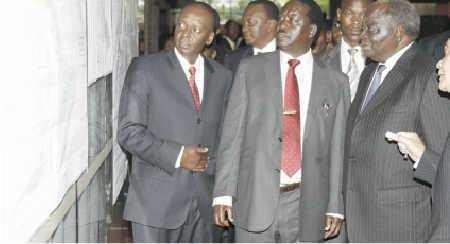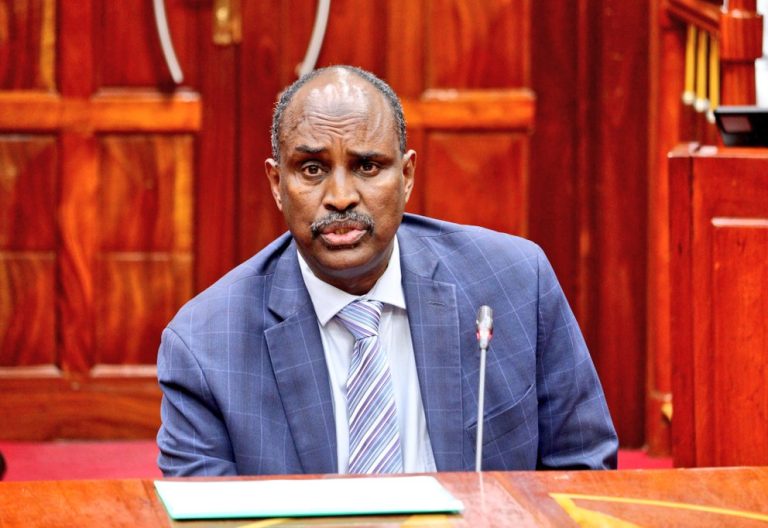Kibaki and the ethnic factor, curse of Kenyan politics, society

There is probably no Kenyan political leader who felt the pain of negative ethnicity in the national psyche more than Mwai Kibaki.
A brilliant academic and economist, Kibaki, in 1955, emerged from Makerere University as a distinguished student of economics, history and political science, graduating best in his class with a first-class honours degree in economics.
He later earned a scholarship to the prestigious London School of Economics, where he graduated with a distinction in public finance.
His solid academic grounding and sound knowledge of the prevailing socio-political dynamics in the colonial era was recognised by the nationalist elite engaged in the protracted struggle for freedom and independence from British rule.
The nationalists fighting for independence included Jaramogi Oginga Odinga who rejected a British proposition to assume the country’s leadership, insisting that Jomo Kenyatta be released from jail to take the mantle.
Jaramogi’s gesture remains a major talking point to date as a repudiation of the politics of ethnicity.
Reviewing Jaramogi’s autobiography ‘Not Yet Uhuru’ in the New York Times in February 1968, Dick Roberts wrote that Odinga was primarily responsible for the release of Kenyatta, making the slogan “free political prisoners” the main thrust of his political organisation.
“Odinga founded Kanu in 1960, a national alliance of the political groupings dedicated to the freeing of Kenyatta and the independence of Kenya,” Roberts writes.
First class
It was Jaramogi who enlisted Kibaki into Kanu and the frontline of nationalism and independence politics, a decision that would serve him well on his journey to the pinnacle of leadership.
During a visit to Uganda to mark the independence celebrations in 1962, Jaramogi tasked Prof David Wasawo to initiate talks that would make Kibaki, then a tutorial fellow in Makerere University’s department of economics, to abandon academia for the heady world of politics.
Wasawo had returned to Makerere in 1952 as the first African lecturer in the Faculty of Science after scoring another as the first black African to secure a first-class honours degree from the prestigious Oxford University in the UK.
Edwin Onyango Radier, who served as personal assistant to Jaramogi and a former Kisumu councillor, told the Truth, Justice and Reconciliation Commission (TJRC) in July 2011 that Jaramogi was acting on the advice of Kikuyu elders who had identified Kibaki.
Radier said Jaramogi talked Kibaki into returning home to become the Kanu executive officer as the country was heading to independence and needed well-educated Kenyans like him to help in the formation of the new government.
He said Kibaki was at first hesitant, telling Jaramogi that although the idea was good, he had only three months to be confirmed as a lecturer, arguing that he would then be able to get a loan to buy a car.
“But Jaramogi told him he would buy him a car. Come to my office in Nairobi,” Radier informed the commission.
Two weeks later, Kibaki turned up at Jaramogi’s Nairobi office and Radier was given Sh9,500 to go to Marshalls and pay for a Peugeot car for Kibaki,” he added.
Jaramogi, who was staying at Jerusalem in Eastlands, Nairobi, also rented a house for Kibaki at nearby Bahati estate and paid him an allowance of Sh700 to maintain the car for six months.
Liberation heroes
Radier told the TJRC that Jaramogi chose Kibaki for the Kanu executive officer’s post to take over from lawyer Collins Omondi Odipo, a Luo, in order to popularise the party among members of the Kikuyu and other ethnic communities.
After convincing Kibaki to accept the role, Jaramogi took his appointment to the party’s national executive committee where it was ratified.
That was the beginning of a close association transcending generations and ethnic barriers linking Kenyatta, Odinga, Kibaki, Tom Mboya, Daniel arap Moi and other leaders from across the country that continues to dominate the political landscape.
The liberation heroes of the war against colonialism and the post-independence government of national unity epitomised the kaleidoscopic tapestry of the diverse Kenyan ethnic communities.
As executive officer of Kanu alongside Mboya, the secretary-general, Kenyatta and Jaramogi had two trusted minds to chaperone the final stages of the “war of liberation”.
Mboya, like Jaramogi, demonstrated national political leadership qualities that defied ethnic considerations within a political system.
Radier bemoaned before the TJRC that Kenya started on the right path as a united nation devoid of ethnic differences. However, after independence the bitter fallout between Jaramogi and Kenyatta led to the emergence of the bad blood between their two communities that roped in others.
The war against the ills of poverty, disease, ignorance, political oppression, economic exploitation and human rights violations that the founders of our nation fought against are still festering wounds in the conscience of our nation. Negative ethnicity remains the biggest obstacle to national unity.
Kibaki would later (now in the opposition in) become a central player in the stormy Kenyan ethnic politics when Jaramogi’s equally fiery son Raila Odinga endorsed him for the successful stab at the presidency that ended Kanu’s 40-year rule.
This was after Kibaki had long quit the party he served in with Jomo, Jaramogi and later as Moi’s vice-president to form his Democratic Party (DP) in December 1991.
He later joined the National Rainbow Coalition (NARC), which propelled him to the highest seat in the land in 2002.
Kibaki Tosha
Kibaki faced the full force of this negative ethnicity during the post-election violence (PEV) in 2007/2008 at the end of his first term in office when he faced Raila at the ballot. The PEV left 1,130 people dead and more than 600,000 displaced.
This was after the man who championed his candidacy with the famous clarion call “Kibaki Tosha” win turned opponent and disputed the presidential election result, claiming his victory was stolen.
It required an internationally mediated settlement under the National Accord to stabilise the nation that saw Raila become Prime Minister with President Kibaki in the Grand Coalition Government.
That was followed by two ethnic-inspired and equally disputed elections in 2013 and 2017.
Now President Uhuru Kenyatta is approaching the end of his tenure navigating a delicate political terrain after rapprochement with his bitter election rival Raila.
In a replay of the deep association that Kibaki cemented with their fathers Jaramogi and Jomo, Uhuru and Raila are resuscitating history through their Handshake and the Building Bridges Initiative they hope will shatter the enduring negative ethnic divide and consolidate national unity.
Whether or not the descendants will succeed where the ancestors failed could soon be revealed.








